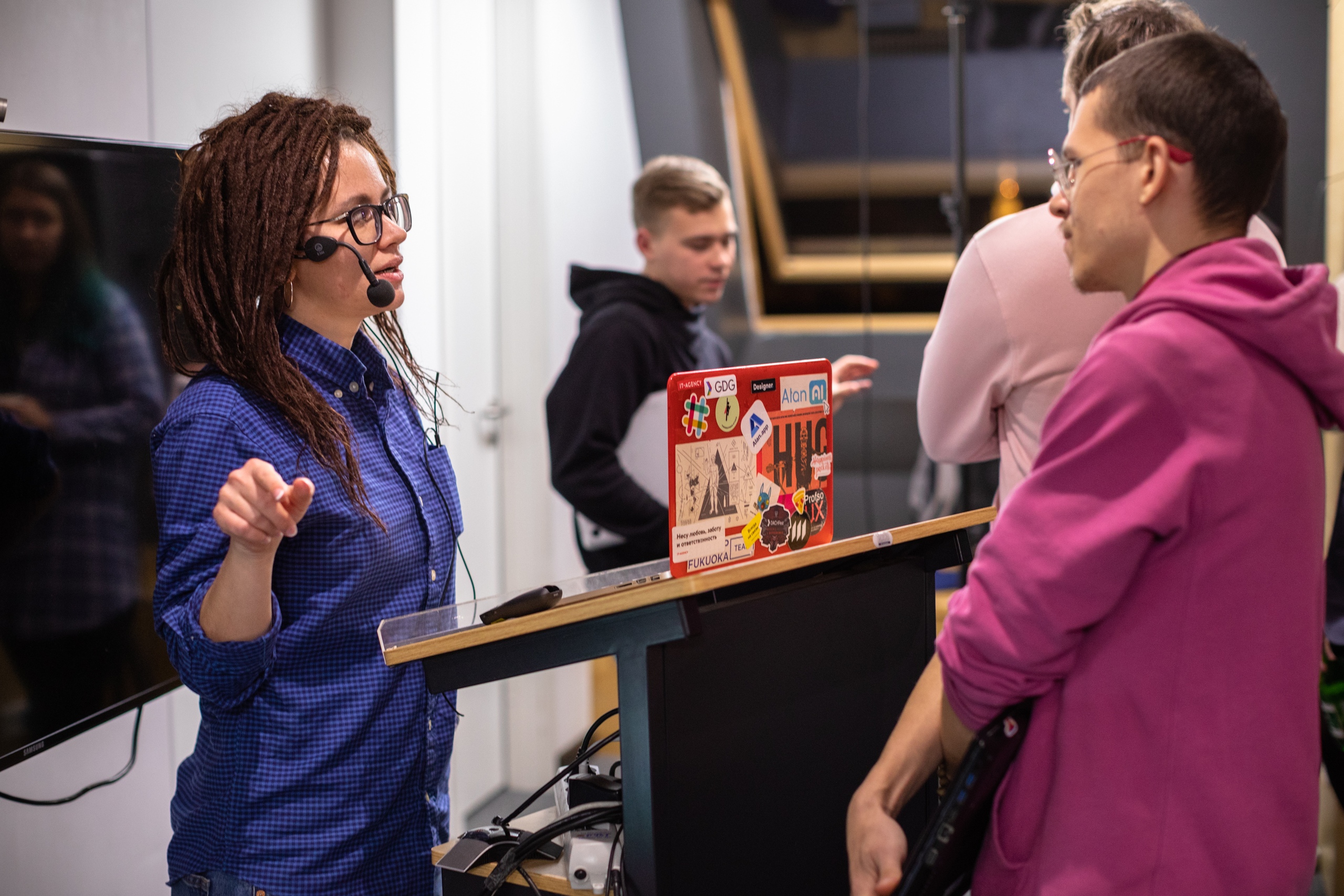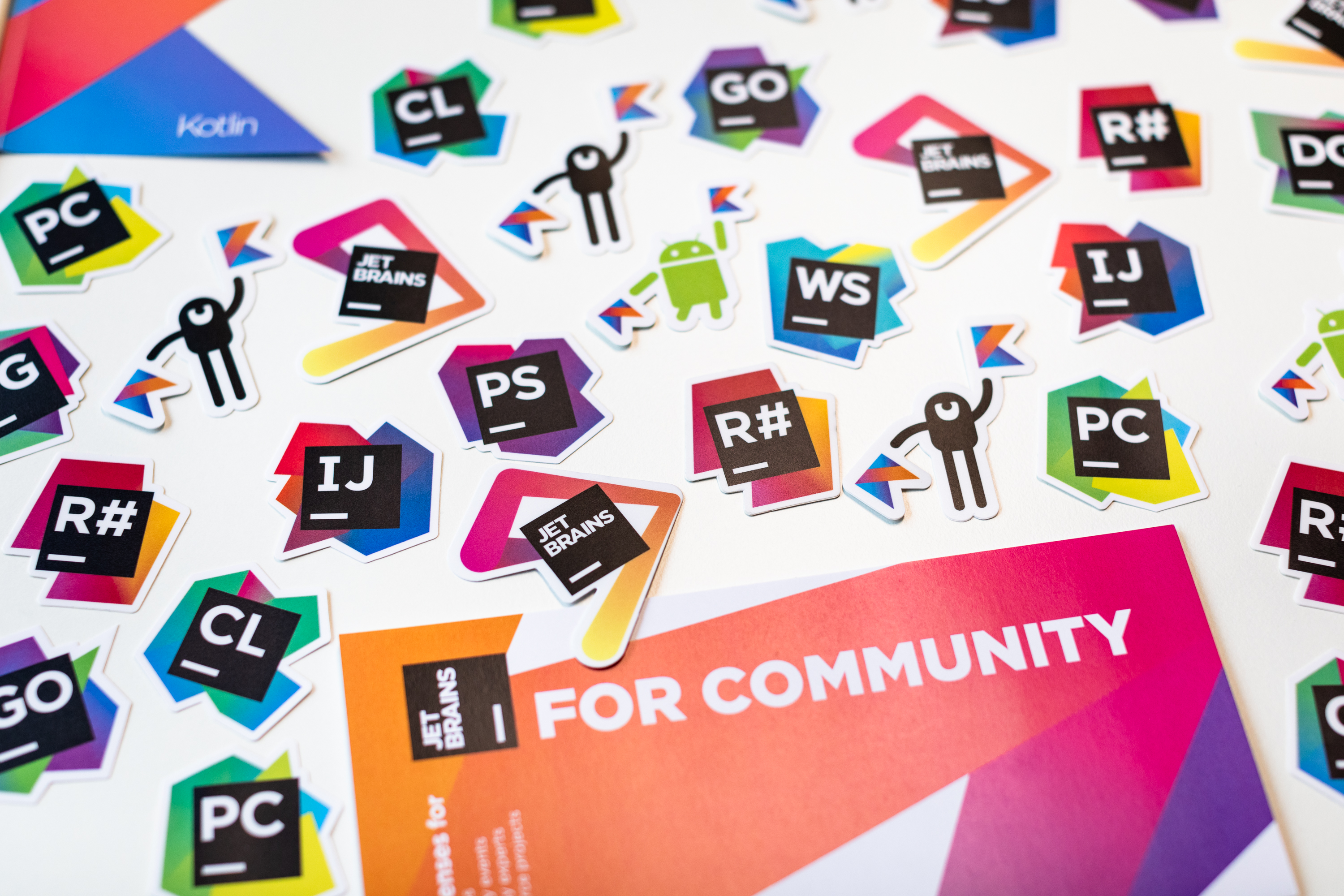8 Steps to a Successful User Group
Starting up a user group is not easy. But doing stuff you enjoy with peers who share your passion, keeping your knowledge and skills sharp and up to date by learning new things, and meeting other people in your profession, makes it all totally worth it.
At JetBrains, we are a team of determined developers and enthusiasts; code is our passion. Creating great tools is not possible without inspiration, teamwork, feedback, and attention to detail. Building a user group requires a lot of the same qualities.
Among us, we have many keen and experienced user group organizers. In this article, we want to share with you their tips and tricks for creating a successful user group.

Find co-organizers
Running a user group is usually much more work than you first expect. Finding co-organizers who share your dreams and duties and can provide you with support and feedback, is key to getting your user group off the ground. You’ll be spending a lot of time together – brainstorming, programming, running events – so your team should be made up of people who you can get along with.
“It can be a time sink, and you NEED other people to help. You might be sick or have a vacation planned; someone needs to still run the group” (Rachel Appel, a former organizer of .NET Valley)
Look for sponsors
Your user group could be independent or company-run. In any case, you’re going to need sponsors to cover the expenses for things like the location, speakers, prizes, and everything else.
For company-based user groups, it’s easier to find sponsorship, location, and promotion. You can send invitations through the company’s mailing list to inform more potential attendees, invite speakers, and advertise the meetup on the company website. It’s beneficial for a company to host the user group meetups too, as it can help them support their brand in the local market.
“One thing that worked out very well for us was to start searching for sponsors early on. It gives a bit of a cushion to help out with organizing things; we have once used some sponsor money to throw a BBQ at one of the meetups, … it helps us, and helps the sponsors with visibility, definitely a good thing to do!” (Maarten Balliauw, Azure User Group Belgium)
Choose a location
Any place with a projector or a big screen that is easily accessible and quiet enough for presentations to be heard would work. Free wi-fi would also be a bonus.
“Cost is a huge factor. Another is access to the location. Finding places near metro stations or where you don’t need to drive an hour out of town is key” (Rachel Appel, a former organizer of .NET Valley)
Still, the most popular solution is a company office or a dedicated event space. If a user group has sponsors, they are likely to host the meetups at their place.
“When we have a speaker, we reach out to one or two of the sponsors to see if they have a room available in their company to host 30-40 people, and if they have: that’s our location” (Maarten Balliauw, Azure User Group Belgium)
Are you looking for a place that is a little less formal to host your event? Try your favorite pub or coworking space. Organizing a summer party is an excellent opportunity to change up the format and discuss topics in a more relaxed atmosphere.
Invite speakers
You can look for speakers in your local community, through professional connections, at conferences, or at other user group meetups. If a potential speaker plans to visit your city – contact them in advance and invite them to give a talk at your event.
“You can always reach out to people you don’t know through social networks, and they are usually very happy to come and speak at events – if their costs are covered” (Rachel Appel, a former organizer of .NET Valley)
Take note of all the people who have shown interest in or want to speak at your user group. Keep a list of potential speakers and topics, and reach out to those people when organizing your next event.
A speaker doesn’t need to be well-known or have thousands of followers on Twitter. Right now there could be someone in your user group who is involved in an exciting project, working on a cutting-edge topic, or wishing to share their insight and experience on solving challenging issues.
“I encourage new people to try and make a talk for the first time. Every meetup I engage people to contact me and share their ideas. Often it is these ideas that get made into a talk a few months later. Every good speaker was a newbie at some point, and user groups can help you grow in that direction. So my goal is not only to invite good speakers but to help people become one” (Anastasia Kazakova, St.Petersburg C++ User Group)
However, don’t get frustrated if you cannot find a speaker or if they cancel their talk at the last minute:
“Not every meetup needs a speaker. Hack sessions and discussion rounds can also be successful formats” (Justin Kaeser, Munich Scala User Group)
Stick to the plan
When you have an organizational team and a potential location – book a date in your calendar and don’t back out. This helps fight procrastination and the quest for perfection.
“Find 1-2 other people to spread the workload – but also make sure your goals align. Find and talk to other user group leaders – not necessarily in the same technology/field – and ask them for help. Fight for regular events – it’s what keeps your group alive” (Yann Cebron, JUG Hannover)
“Just do it! I wanted to start a user group for a long time, but I didn’t feel I could do it. Sometimes I struggle with fewer people willing to give a talk; sometimes I have to struggle with other things. But I know and love the community, and I feel it is all worth it”. (Anastasia Kazakova, St.Petersburg C++ User Group)
Keep it regular
Regular meetups work much better for promoting your user group and bring you more members. An event doesn’t need to be ideal; even just a few people will give you some experience and inspiration for the future.
“I try to be ready with the next event announcement before the previous event so that I can invite people in person to the next meetup. I usually include the announcement on the next meetup in my intro presentation at the beginning of each event.” (Anastasia Kazakova, St.Petersburg C++ User Group)
It’s a good idea to have a fixed day for your meetups (e.g., the first Thursday of every month). If there are established user groups in your area – make sure your events don’t run across. Social media and word of mouth can help attract more people to your events.
“Twitter and our newsletter are our main drivers. LinkedIn and Facebook come second.” (Maarten Balliauw, Azure User Group Belgium)
Use all the possible communication channels available to you. You cannot overpromote an event. Even established user groups can have a poor turnout from time to time. Don’t be afraid – just keep going.
“I just announce out events on meetup.com and sometimes tweet from my own twitter account (which is now about 1300 followers) and then get a list of RSVPs and a waiting list. However, our regular drop-off rate is 40-50%. Which is totally fine.” (Anastasia Kazakova, St.Petersburg C++ User Group)
Talk to your attendees
Involve the community: ask them to tell you what interests them and who they want to meet. Some user groups prefer an interactive format for the initial meetup. They provide questions and let the attendees discuss. This helps the organizers determine the interests and expectations of the user group members. If you make a list – you are likely to get a schedule for your next events.
“We used to have a Google Form to gather feedback after each event, but stopped doing that after we realized not everyone was using it and it was not representative. Now we try to chat with people to hear what they thought of the meetup/speaker” (Maarten Balliauw, Azure User Group Belgium)
If there are a lot of questions after a talk, you may want to suggest continuing in the nearest cafe or pub.

Get prizes for your user group members
Stickers, notebooks, t-shirts, software licenses all make great giveaways and prizes for attendees. They are not a necessity, but they are a nice bonus that can become a good tradition to support your community and gauge the interest of your events.
JetBrains provides active developer user groups with free licenses for our professional tools to raffle off at your group’s regular local events. We have effective solutions for all popular technologies and languages: IntelliJ IDEA for Java, ReSharper for .NET, PhpStorm for PHP, PyCharm for Python, and many others.
We value your dedication to the community and so provide the user group organizers with free annual subscriptions as well.
Submit an online form to get support for your user group now or drop us an email at community-support@jetbrains.com if you have any questions and let’s rock :)
Subscribe to JetBrains Blog updates








